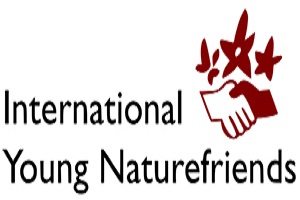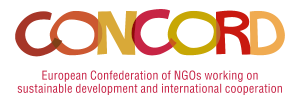
Start date and end date of the Action: 1 May – 31 December 2015
ECOmaps is a European web mapping system of the most sustainable, green and eco-friendly places in a given city or region created and developed within this project. ECOmaps also provided educational tools, raised awareness and encouraged people to change their habits and support local and fair trade economies, while protecting the environment.
We mapped 250 places in 57 European cities (target of at least 20 European cities/places clearly exceeded) and presented ECOmaps in different events in at least 10 EU countries.
The ECOmaps was launched in the middle of November 2015 and during the last week of November more than 10 people registered on the website. Therefore, we decided to give the users the possibility to add new cities themselves. Most of the places/cities in the system were actually requested or added by users themselves. However the amount of information offered is still uneven (not all the cities have the same ratio of data). While some locations, like Prague, Karlsruhe, Belgrade, Bratislava or Cologne, have many places mapped, there are also many cities and towns with just a few places uploaded. We believe that this happened due to: small towns have usually smaller amount of sustainable places and some users might find the mapping service (adding data) either complex or time consuming. In January 2016, 261 services can be found in the system.
We collected feedback on the system in different events and, after the launch, received emails with positive feedback and ideas for improving the website. E.g. some asked to make the search simpler as the list of cities became cluttered after we added so many places. This feedback was essential to review the webpage and make improvements. The web developer proposed to incorporate a multilingual support on ECOmaps, offering the possibility of having the website available in all official EU languages. Thanks to this tool volunteers can easily translate the content of ECOmaps into their native languages. By the end of December, one of our e-volunteers translated ECOmaps in German. This task will be further implemented throughout 2016.
The website received around 600 views in the first two weeks after the audience tracker was available. The tools to analyse traffic and engagement will help in raising awareness and supporting eco-consumers and travellers.
Three students and fresh graduates from “sustainable development” and “environmental studies” were hired as researchers of educational content for the system. The researchers collected over 30 articles, videos and infographics, from own content and other sources for publishing on ECOmaps gradually and also to be shared on ECOmaps Facebook and IYNF Facebook, newsletter, and the EYD2015 communication channels, such as the joint e-magazine of the CONCORD coordinated EYD2015 Civil Society Alliance. All of the researchers were capable of presenting varied and relevant, high quality materials, aligned with the aims of ECOmaps. They provided the first articles, which were also published on the EYD2015 website and on the IYNF social media:
A student of graphic design, one of our volunteers, expressed his motivation and desire to create a promotional movie. The ECOmaps video was released on our Youtube account and IYNF Facebook page reaching more than 400 views in 2 weeks. Through different IYNF media channels, the release of the video reached more than 1,500 people and received 23 likes on Facebook.
ECOmaps was presented among others in the IYNF, the EYD2015 Civil Society Alliance, Naturefriends International, EGEA and EYF events reaching more than 700 participants.
Through GreenGlasses we received an invitation to present ECOmaps in a local event organized by the Czech Ministry of Environment in June 2016, and meanwhile our participation in the European Youth Event 2016 (23-25 September) is being prepared. By the end of 2016, we expect to promote the project in the COP22. Until then we will have ongoing promotion online and offline, presentations in several IYNF activities happening this year, while the web developer keeps providing support and help to improve ECOmaps and keep it up-to-date.
